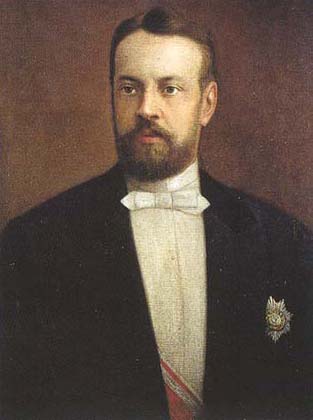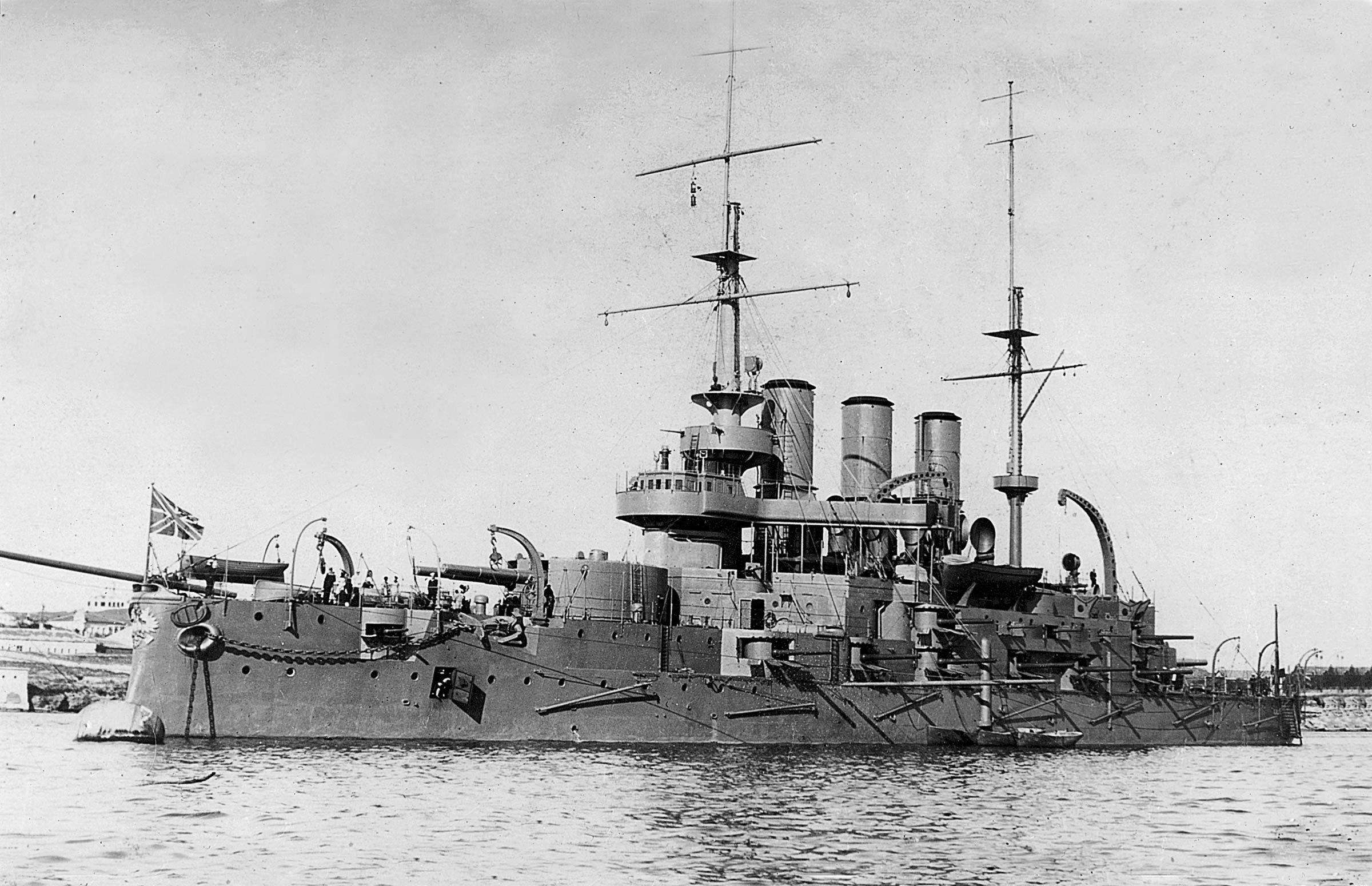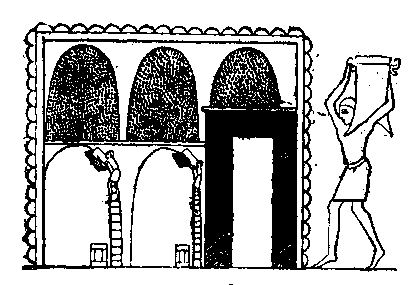|
Odessa Pogrom
A series of pogroms against Jews in the city of Odessa, Ukraine, then part of the Russian Empire, took place during the 19th and early 20th centuries. They occurred in 1821, 1859, 1871, 1881 and 1905. According to Jarrod Tanny, most historians in the early 21st century agree that the earlier incidents were a result of "frictions unleashed by modernization," rather than by a resurgence of medieval antisemitism. The 1905 pogrom was markedly larger in scale, and antisemitism played a central role. Odessa had a multi-ethnic population included Greek, Jewish, Russian, Ukrainian and other communities. 1821 pogrom The 1821 pogrom, perpetrated by ethnic Greeks rather than Russians, is named in some sources as the first in the modern period in Russia: In Odessa, Greeks and Jews were two rival ethnic and economic communities, living side by side. The first Odessa pogrom, in 1821, was linked to the outbreak of the Greek War of Independence, Greek War for Independence, during which the Jews ... [...More Info...] [...Related Items...] OR: [Wikipedia] [Google] [Baidu] |
Patriarch Gregory V Of Constantinople
Gregory V ( el, , born , ''Georgios Angelopoulos''; 1746) was Ecumenical Patriarch of Constantinople from 1797 to 1798, from 1806 to 1808, and from 1818 to 1821. He was responsible for much restoration work to the Patriarchal Cathedral of St George, which had been badly damaged by fire in 1738. Biography Born in Dimitsana, he studied in Athens for two years beginning in 1756, then moved to Smyrna for five more years of study. Tonsured as a monk with the name "Gregory" at the monastery in Strofades, he then studied at Patmiada School. Returning to Smyrna, he was ordained to the diaconate by Procopius who was Metropolitan of Smyrna at the time. In 1785, Gregory was consecrated as Metropolitan of Smyrna when Procopius was elected as Ecumenical Patriarch of Constantinople. In 1797, Gregory was first elected Ecumenical Patriarch upon the resignation of Gerasimus III. At the onset of the Greek War of Independence, as Ethnarch of the Orthodox Millet Gregory V was blamed by Ot ... [...More Info...] [...Related Items...] OR: [Wikipedia] [Google] [Baidu] |
Sergei Witte
Count Sergei Yulyevich Witte (; ), also known as Sergius Witte, was a Russian statesman who served as the first prime minister of the Russian Empire, replacing the tsar as head of the government. Neither a liberal nor a conservative, he attracted foreign capital to boost Russia's industrialization. Witte's strategy was to avoid the danger of wars. Witte served under the last two emperors of Russia, Alexander III () and Nicholas II ().Harcave, Sidney. (2004)''Count Sergei Witte and the Twilight of Imperial Russia: A Biography,'' p. xiii./ref> During the Russo-Turkish War (1877–78), he had risen to a position in which he controlled all the traffic passing to the front along the lines of the Odessa Railways. As finance minister from 1892 to 1903, Witte presided over extensive industrialization and achieved government monopoly control over an expanded system of railroad lines. Following months of civil unrest and outbreaks of violence in what became known as the 1905 Russian ... [...More Info...] [...Related Items...] OR: [Wikipedia] [Google] [Baidu] |
Russian Battleship Potemkin
The Russian battleship ''Potemkin'' (russian: Князь Потёмкин Таврический, translit=''Kniaz Potyomkin Tavricheskiy'', links=no, "Prince Potemkin of Taurida") was a pre-dreadnought battleship built for the Imperial Russian Navy's Black Sea Fleet. She became famous when the crew rebelled against the officers in June 1905 (during that year's revolution), which is now viewed as a first step towards the Russian Revolution of 1917. The mutiny later formed the basis of Sergei Eisenstein's 1925 silent film ''Battleship Potemkin''. After the mutineers sought asylum in Constanța, Romania, and after the Russians recovered the ship, her name was changed to ''Panteleimon''. She accidentally sank a Russian submarine in 1909 and was badly damaged when she ran aground in 1911. During World War I, ''Panteleimon'' participated in the Battle of Cape Sarych in late 1914. She covered several bombardments of the Bosphorus fortifications in early 1915, including one where ... [...More Info...] [...Related Items...] OR: [Wikipedia] [Google] [Baidu] |
Cossack
The Cossacks , es, cosaco , et, Kasakad, cazacii , fi, Kasakat, cazacii , french: cosaques , hu, kozákok, cazacii , it, cosacchi , orv, коза́ки, pl, Kozacy , pt, cossacos , ro, cazaci , russian: казаки́ or , sk, kozáci , uk, козаки́ are a predominantly East Slavic languages, East Slavic Eastern Orthodox, Orthodox Christian people originating in the Pontic–Caspian steppe of Ukraine and southern Russia. Historically, they were a semi-nomadic and semi-militarized people, who, while under the nominal suzerainty of various Eastern European states at the time, were allowed a great degree of self-governance in exchange for military service. Although numerous linguistic and religious groups came together to form the Cossacks, most of them coalesced and became East Slavic languages, East Slavic-speaking Eastern Orthodox Church, Orthodox Christians. The Cossacks were particularly noted for holding democratic traditions. The rulers of t ... [...More Info...] [...Related Items...] OR: [Wikipedia] [Google] [Baidu] |
Russo-Japanese War
The Russo-Japanese War ( ja, 日露戦争, Nichiro sensō, Japanese-Russian War; russian: Ру́сско-япóнская войнá, Rússko-yapónskaya voyná) was fought between the Empire of Japan and the Russian Empire during 1904 and 1905 over rival imperial ambitions in Manchuria and the Korean Empire. The major theatres of military operations were located in Liaodong Peninsula and Mukden in Southern Manchuria, and the Yellow Sea and the Sea of Japan. Russia sought a warm-water port on the Pacific Ocean both for its navy and for maritime trade. Vladivostok remained ice-free and operational only during the summer; Port Arthur, a naval base in Liaodong Province leased to Russia by the Qing dynasty of China from 1897, was operational year round. Russia had pursued an expansionist policy east of the Urals, in Siberia and the Far East, since the reign of Ivan the Terrible in the 16th century. Since the end of the First Sino-Japanese War in 1895, Japan had feared Russia ... [...More Info...] [...Related Items...] OR: [Wikipedia] [Google] [Baidu] |
Grain Trade
The grain trade refers to the local and international trade in cereals and other food grains such as wheat, barley, maize, and rice. Grain is an important trade item because it is easily stored and transported with limited spoilage, unlike other agricultural products. Healthy grain supply and trade is important to many societies, providing a caloric base for most food systems as well as important role in animal feed for animal agriculture. The grain trade is as old as agricultural settlement, identified in many of the early cultures that adopted sedentary farming. Major societal changes have been directly connected to the grain trade, such as the fall of the Roman Empire. From the early modern period onward, grain trade has been an important part of colonial expansion and international power dynamics. The geopolitical dominance of countries like Australia, the United States, Canada and the Soviet Union during the 20th century was connected with their status as grain surplus co ... [...More Info...] [...Related Items...] OR: [Wikipedia] [Google] [Baidu] |
Crimean War
The Crimean War, , was fought from October 1853 to February 1856 between Russia and an ultimately victorious alliance of the Ottoman Empire, France, the United Kingdom and Piedmont-Sardinia. Geopolitical causes of the war included the decline of the Ottoman Empire, the expansion of the Russian Empire in the preceding Russo-Turkish Wars, and the British and French preference to preserve the Ottoman Empire to maintain the balance of power in the Concert of Europe. The flashpoint was a disagreement over the rights of Christian minorities in Palestine, then part of the Ottoman Empire, with the French promoting the rights of Roman Catholics, and Russia promoting those of the Eastern Orthodox Church. The churches worked out their differences with the Ottomans and came to an agreement, but both the French Emperor Napoleon III and the Russian Tsar Nicholas I refused to back down. Nicholas issued an ultimatum that demanded the Orthodox subjects of the Ottoman Empire be ... [...More Info...] [...Related Items...] OR: [Wikipedia] [Google] [Baidu] |
June 1905 Massacre
June is the sixth month of the year in the Julian and Gregorian calendars and is the second of four months to have a length of 30 days, and the third of five months to have a length of less than 31 days. June contains the summer solstice in the Northern Hemisphere, the day with the most daylight hours, and the winter solstice in the Southern Hemisphere, the day with the fewest daylight hours (excluding polar regions in both cases). June in the Northern Hemisphere is the seasonal equivalent to December in the Southern Hemisphere and vice versa. In the Northern Hemisphere, the beginning of the traditional astronomical summer is 21 June (meteorological summer begins on 1 June). In the Southern Hemisphere, meteorological winter begins on 1 June. At the start of June, the sun rises in the constellation of Taurus; at the end of June, the sun rises in the constellation of Gemini. However, due to the precession of the equinoxes, June begins with the sun in the astrological sign o ... [...More Info...] [...Related Items...] OR: [Wikipedia] [Google] [Baidu] |
October Manifesto
The October Manifesto (russian: Октябрьский манифест, Манифест 17 октября), officially "The Manifesto on the Improvement of the State Order" (), is a document that served as a precursor to the Russian Empire's first Constitution, which was adopted the following year in 1906. The Manifesto was issued by Tsar Nicholas II (1868–1918, ruled 1894–1917), under the influence of Sergei Witte (1849–1915), on as a response to the Russian Revolution of 1905. Nicholas strenuously resisted these ideas, but gave in after his first choice to head a military dictatorship, [...More Info...] [...Related Items...] OR: [Wikipedia] [Google] [Baidu] |
Empire Of Japan
The also known as the Japanese Empire or Imperial Japan, was a historical nation-state and great power that existed from the Meiji Restoration in 1868 until the enactment of the post-World War II Constitution of Japan, 1947 constitution and subsequent formation of modern Japan. It encompassed the Japanese archipelago and several colony, colonies, protectorates, League of Nations mandate, mandates, and other Dependent territory, territories. Under the slogans of and following the Boshin War and restoration of power to the Emperor from the Shogun, Japan underwent a period of industrialization and militarization, the Meiji Restoration, which is often regarded as the fastest Modernization of Japan, modernisation of any country to date. All of these aspects contributed to Japan's emergence as a great power and the establishment of Japanese colonial empire, a colonial empire following the First Sino-Japanese War, the Boxer Rebellion, the Russo-Japanese War, and World W ... [...More Info...] [...Related Items...] OR: [Wikipedia] [Google] [Baidu] |
Anti-Semitism
Antisemitism (also spelled anti-semitism or anti-Semitism) is hostility to, prejudice towards, or discrimination against Jews. A person who holds such positions is called an antisemite. Antisemitism is considered to be a form of racism. Antisemitism has historically been manifested in many ways, ranging from expressions of hatred of or discrimination against individual Jews to organized pogroms by mobs, police forces, or genocide. Although the term did not come into common usage until the 19th century, it is also applied to previous and later anti-Jewish incidents. Notable instances of persecution include the Rhineland massacres preceding the First Crusade in 1096, the Edict of Expulsion from England in 1290, the 1348–1351 persecution of Jews during the Black Death, the massacres of Spanish Jews in 1391, the persecutions of the Spanish Inquisition, the expulsion from Spain in 1492, the Cossack massacres in Ukraine from 1648 to 1657, various anti-Jewish pogroms in th ... [...More Info...] [...Related Items...] OR: [Wikipedia] [Google] [Baidu] |






.jpg)

